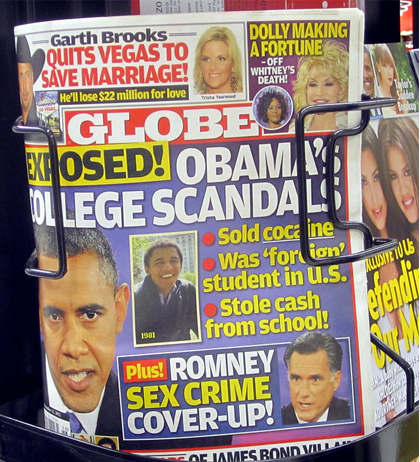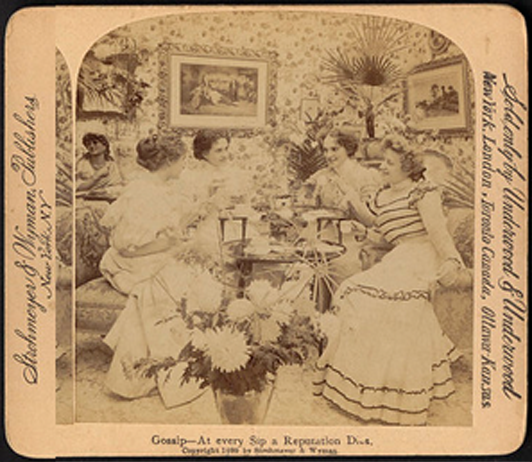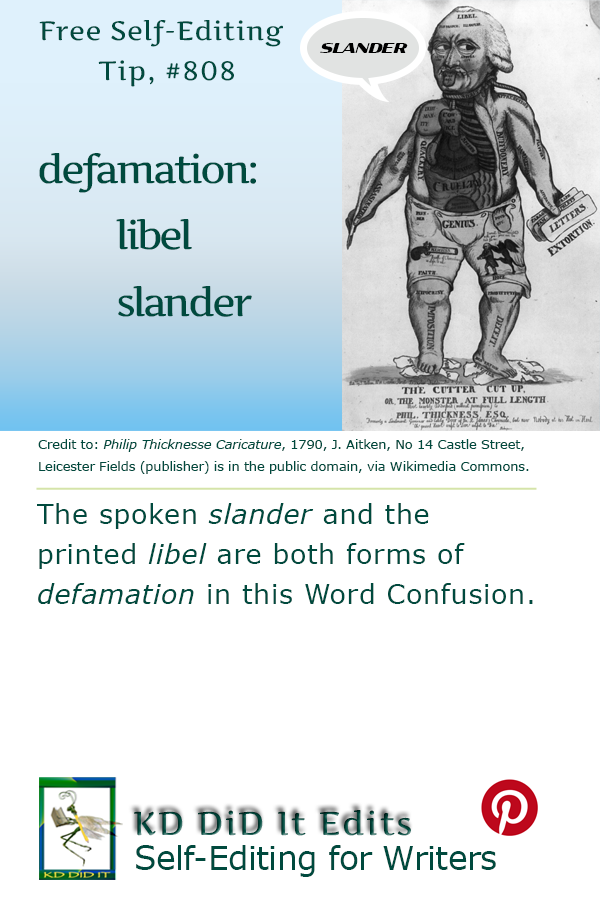Revised as of
1 July 2023
Libel is a lie that is printed or broadcast while slander is a lie that is spoken, and both are considered forms of defamation.
Anyone can sue someone who defames them . . . except for public persons, such as politicians and celebrities. They have to prove that the statement was made with “reckless disregard for the truth”.
You may also want to explore “Liable versus Libel“.
Word Confusions . . .
. . . started as my way of dealing with a professional frustration with properly spelled words that were out of context in manuscripts I was editing as well as books I was reviewing. It evolved into a sharing of information with y’all. I’m hoping you’ll share with us words that have been a bête noire for you from either end.
If you found this post on “Defamation is Either Libel or Slander” interesting, consider subscribing to KD Did It, if you’d like to track this post for future updates.
| Defamation | Libel | Slander |
|---|---|---|

Trump Lies Matter by Ted Eytan from an article by David Hawkings “Recounts and Firings Further Trump’s Crusade, Which the Public Starts Buying” is under the CC BY-SA 4.0 license, via Ms. Magazine, 19 November 2020. |

Refreshingly Bipartisan — Since it’s in print, it’s considered libel. |

Gossip — at Every Sip a Reputation Dies, 1899, courtesy of Boston Public Library is under the CC BY 2.0 license, via Flickr. — Slander is spoken lies. |
| Part of Grammar: | ||
| Mass Noun
Plural: defamation |
Noun; Verb, transitive
Plural for the noun: libels Third person present verb: libels |
Noun; Verb, intransitive & transitive Plural for the noun: slander Third person present verb: slanders |
| The action of damaging the good reputation of someone
The act of communicating false statements about a person that injure the reputation of that person
|
Published statement
Noun: [Law] A published false statement in written or printed words, pictures, or in any form other than by spoken words or gestures that is damaging to a person’s reputation
[In admiralty and ecclesiastical law] A plaintiff’s written declaration Verb, transitive:
[In admiralty and ecclesiastical law] Bring a suit against someone |
Oral statement
Noun: [Law] The action or crime of making a false spoken statement damaging to a person’s reputation
Verb, intransitive: Verb, transitive:
|
| Examples: | ||
| She sued him for defamation.
He’s had so many cases of defamation of character brought against him, that the judges simply sign off on them. He’s determined to pursue a defamation lawsuit. If the contents of the publication are untrue, the law of defamation provides prohibition. No defamation occurs until the defamatory matter is communicated to a third party. Defendants have counterclaimed for defamation and abuse of process. The tort of defamation protects a person from untrue imputations which harm his reputation with others. In defamation the falsity of the libel or slander is presumed; but justification is a complete defense. |
Noun: For printing these, Zenger was arrested for libel in November 1734. It was a miserable libel and was at once rebutted by Goodyear. They codify laws regarding libel and slander. The law of libel in England is based on whether the plaintiff has suffered hatred, ridicule, or contempt. “It was not the mere fact that the libel in rem was supported by a maritime cause of action that brought about this result, for that, of course, was equally true of every libel in personam of which admiralty took jurisdiction” (Black). Verb, transitive: Good point, but a blog item that libels someone will remain on the record, likely archived for a good long time, and a libelous statement left online for even a day puts a blogger at tremendous risk. One cannot say what one likes about people or institutions because one cannot libel anyone. They have libeled the ship and forced a lien on it. |
Noun: He is suing the TV network for slander. I’ve had just about all I can stomach of your slanders. It was a slander against his good name. Countries shot back and forth at each other with slanders and false accusations. Verb, intransitive: Verb, transitive: They had no more worries about slandering Lee Hsien Yang accidentally. “He slandered his comrades and he did it, as I wrote in the May 3 issue of National Review, by ‘Americanizing’ Soviet propaganda.” |
| Derivatives: | ||
| Adjective: defamatory Noun: defamer Verb, transitive: defame |
Adjective: libelous, libellous [British], unlibeled, unlibelled Adverb: libelously, libelouslly [British] Noun: libelant, libellant [British], libeler, libelist, libeller [British] Verb, transitive: interlibel, interlibeled, interlibeling, interlibelled, interlibelling [British] |
Adjective: slanderous Adverb: slanderingly, slanderously Noun: slanderer |
| History of the Word: | ||
| Middle English from the Old French diffamer, which is from the Latin diffamare meaning spread evil report, from dis- (expressing removal) + fama (report). | Middle English, in the general sense of a document, a written statement, via the Old French from the Latin libellus, a diminutive of liber meaning book. | Middle English, from the Old French esclandre, an alteration of escandle, from the late Latin scandalum. |
C’mon, get it out of your system, bitch, whine, moan . . . which words are your pet peeves? Also, please note that I try to be as accurate as I can, but mistakes happen or I miss something. Email me if you find errors, so I can fix them . . . and we’ll all benefit!
Satisfy your curiosity about other Word Confusions on its homepage or more generally explore the index of self-editing posts. You may also want to explore Book Layout & Formatting Ideas, Formatting Tips, Grammar Explanations, Linguistics, Publishing Tips, the Properly Punctuated, Writing Ideas and Resources, and Working Your Website.
Resources for Defamation is Either Libel or Slander
Apple Dictionary.com
Black, Charles L. Jr. “Admiralty Jurisdiction: Critique and Suggestions.” Yale Law School Legal Scholarship Repository. Yale Law School. 1 Jan 1950?? Web. 25 September 2019. <https://pdfs.semanticscholar.org/0ff6/f424b2c6c4474fb857df7a6046d9d747aff0.pdf>.
Dictionary.com: liable
Lexico.com: defamation, libel, slander
Litt, Steven. “Only one More Week to Seek Outstanding Second Rotation of Japanese Artworks in CMA’s Big Shinto Exhibition.” cleveland.com. 23 June 2019. Web. 25 Sept 2019. <https://www.cleveland.com/arts/2019/06/only-one-more-week-to-seek-outstanding-second-rotation-of-japanese-artworks-in-cmas-big-shinto-exhibition.html>.
Merriam-Webster: slander
“US Defamation & Libel Laws.” Minc LLC. n.d. Web. 26 Sept 2019. <https://www.minclaw.com/us-defamation-laws/>. And I am curious about the definition of a veggie libel law . . .
Your Dictionary.com: libel
Pinterest Photo Credits:
Philip Thicknesse Caricature, 1790, J. Aitken, No 14 Castle Street, Leicester Fields (publisher) is in the public domain, via Wikimedia Commons. The chat bubble for “slander” was added in Photoshop.


